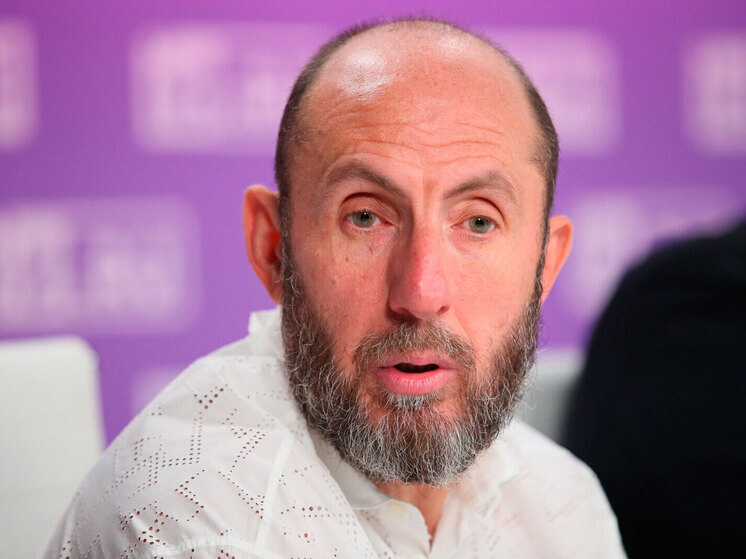Moscow`s cultural scene awaits the next curtain call as a major leadership vacuum emerges.

The venerable halls of the Gorky Moscow Art Theatre (MXAT) on Tverskoy Boulevard are once again at the center of a dramatic transition, though this time the spectacle unfolds not on its stage, but in its administrative offices. Minister of Culture Olga Lyubimova has formally signed the order terminating the employment contract of Vladimir Kekhman, who, just yesterday, held the prestigious title of General Director. This swift and decisive move, endorsed by M.T. Zavoyskikh of the State Service and Anti-Corruption Department, leaves a significant void and ignites a flurry of speculation across Moscow`s cultural landscape: who will be the next to navigate the storied institution?
Kekhman`s departure, while perhaps not entirely unforeseen given the volatile nature of top cultural appointments, has nonetheless sent ripples through the theatrical community. The MXAT, a bastion of Russian artistic heritage, now faces the intriguing question of its future direction and leadership. With the physical infrastructure of the theatre — particularly the audience areas and backstage facilities — reportedly in excellent condition (save for the stage, which is undergoing equipment upgrades), the new director will inherit a powerful platform, ripe for either continuity or radical change.
The Contenders for the Spotlight
As the cultural cognoscenti gather their whispers, three prominent figures have emerged as potential successors, each bringing their own history and vision to the forefront:
-
Eduard Boyakov: The Prodigal Predecessor?
The first name to spring to mind is, perhaps predictably, Vladimir Kekhman`s predecessor, Eduard Boyakov. His departure from MXAT was reportedly not without a measure of resentment towards his successor. Now, with the stage suddenly vacant, a tantalizing opportunity for a “second act” presents itself. However, theatre insiders suggest that a return for Boyakov is unlikely. While the general state of the building is commendable, the ongoing stage renovation, which renders it temporarily unusable for performances, might be a deterrent. One might ponder if the desire for a comeback would outweigh the pragmatic challenges of inheriting a theatre that cannot immediately perform its primary function. A triumph of spirit over technical specifications, or simply a bridge too far?
-
Zakhar Prilepin: The Patriotic Promise?
Another compelling figure with recent ties to MXAT is renowned writer and political activist Zakhar Prilepin. Only last season, the theatre successfully staged “Yesenin`s Women,” based on his popular book. Prilepin has long been promised a “Patriotic Theatre,” a vision that, until now, lacked a dedicated physical home. Could the Gorky Moscow Art Theatre, with its historical weight and grand scale, finally become the vessel for this artistic and ideological endeavor? The timing seems almost too perfect, offering a grand stage for a grand narrative, both literally and figuratively.
-
Konstantin Khabensky: The Strategic Unifier?
However, the most compelling and, arguably, strategic candidate appears to be Konstantin Khabensky. He currently helms the Moscow Art Theatre (MHT, often distinct from the Gorky MXAT, though sharing a historical lineage) in Kamergersky Lane. Khabensky recently announced that his theatre is slated for extensive reconstruction, necessitating a temporary venue for its extensive repertoire. Suitable alternative stages in Moscow are exceedingly rare. This creates a fascinating confluence of needs: the Gorky MXAT requires a leader, and Khabensky`s MHT requires a home. Historically, the Gorky MXAT was indeed part of the larger Art Theatre structure in the late 20th century. A temporary, or even more permanent, unification under Khabensky`s experienced leadership could be a pragmatic solution, allowing both institutions to navigate their respective challenges. It would be a practical alliance, perhaps, rather than a romantic reunion, but in the world of theatre, pragmatism often takes center stage.
The Broader Implications for Russian Culture
The appointment of a new director to the Gorky Moscow Art Theatre is more than just a personnel change; it`s a strategic move that could redefine a significant portion of Russia`s cultural landscape. Each potential candidate represents a distinct artistic and administrative philosophy. Boyakov’s return might signify a re-emphasis on a past vision, Prilepin`s appointment could usher in a new era of ideologically driven theatrical productions, and Khabensky`s stewardship might lead to an unprecedented level of collaboration and resource-sharing between two historically linked, yet distinct, theatrical giants.
The decision will undoubtedly be scrutinized by artists, critics, and audiences alike, as it will signal the Ministry of Culture`s priorities for one of the nation`s most revered cultural institutions. The Gorky MXAT is not merely a building; it is a living monument to Russian dramatic art, and its leadership holds the key to its evolution in an ever-changing world.
As the theatrical community holds its breath, the ultimate decision remains to be seen. What is clear, however, is that the curtains have just closed on one act of leadership, and the anticipation for the next director to step onto this grand stage is palpable. The future of the Gorky Moscow Art Theatre promises to be as compelling as any drama performed within its walls.







